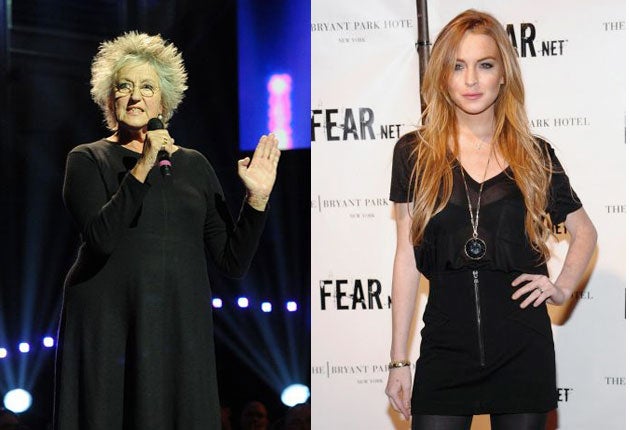Celebrity, the cerebral and articles you won't see in 'Heat'
Matthew Bell wonders if we really need academics to explain our obsession with fame

These are confused times in the age of celebrity. Today yet another series of I'm A Celebrity ... Get Me Out Of Here kicks off, and if column inches are anything to go by, we're as keen on it as ever. But in the jungle of magazine publishing, sales of celebrity titles are in overall decline, with the most recent figures available showing double-figure year-on-year falls in circulation for many. Market leader Heat was down 15.8 per cent in August to 470,129 from the same time last year, while More! was down a staggering 37.6 per cent to a circulation of 162,544.
What then of the launch of Celebrity Studies, a magazine devoted to analysing celebrity culture? Published by Routledge, it will offer "a critical exploration of celebrity, stardom and fame". No close-up pap snaps of Lindsay Lohan's tit tape here, or inside exclusives from the Big Brother house. Rather, readers can expect essays on the growth of the Jamie Oliver effect on political decision-making. According to the blurb, "Celebrity Studies aims to address key issues in the production, circulation and consumption of fame, and its manifestations in both contemporary and historical contexts". An accompanying blog will provide a platform for debates.
Consumer appetite for mainstream anything-as-long-as-it's-celebrity weeklies may be fading, but at the more highbrow end of the market, glossies such as Psychologies are flourishing. Imported from France only three years ago, it has consistently defied the downward trend, rising 15.4 per cent year-on-year in August to a circulation of 150,112. Publishers argue that in times of economic hardship, a magazine is an affordable luxury, giving a burst of pleasure for only a couple of pounds. So if it is the content and not the cover price that's damaging Heat, Celebrity Studies might find a peculiar niche, combining the celebrity with the cerebral.
Germaine Greer, a former contestant on Celebrity Big Brother, has mixed feelings. "I have no doubt there is an audience for something of this kind," she says, "but it's an odd thing to be doing. Anyone who can get a magazine off the ground at the moment deserves a Nobel prize. I doubt it will last more than three issues."
Dreamt up by two media studies academics – Su Holmes of the University of East Anglia and Sean Redmond, a lecturer at the University of Victoria, New Zealand – Celebrity Studies follows an increase in the publication of academic papers about celebs in recent years. To Dr Andy Miah, founder of the first celebrity culture conference in 2005, a publication of this kind was only a matter of time. "It doesn't surprise me. Celebrities have become a focal point of our value system which warrant our attention."
But taking celebrity culture too seriously can seem ridiculous. Biographer and cultural commentator Graham McCann is sceptical of the academic approach: "There is plenty of room for irreverent commentaryas so much of the celebrity industry is complicit and mutually self-serving. The problem with analysis is that academics are obsessed with trying to identify patterns and processes, which leads to generalisations. They don't allow for the individuality or irrationality of a lot of celebrity culture. Looking at certain specific case studies may be illuminating; there might be moral lessons to be learnt. But academic findings of this sort are at best banal and at worst misleading."
Overseen by a panel of 15 editors from universities in the UK and abroad, Celebrity Studies will be published three times a year. Anticipated sales figures are unknown, but interest is expected from a wide audience. "Su and I have both grown up in a world in which celebrity has become the benchmark for the way ideas, dreams, goods and identities are communicated," says Redmond. "One only has to think about the iconic figure of Barack Obama, and the celebrification he went through, to see its reach and power in the modern world. Su and I, though, while critical of and alive to the dangers of the rise of celebrity culture, also recognise its productive capabilities, and the importance of pleasure to the discussions and debates the journal will inspire."
Oh dear. Clearly we can expect plenty of pseudo-academic mumbo jumbo. For the first issue, Redmond says he intends to "invite the leading writers on celebrity to examine its reach, its themes, its meanings, so that we get a sense of 'celebrity now' and 'why celebrity?' " What does it all mean? Who knows. We will have to wait until April 2010, when the first issue is published, to find out. Until then we can get a sense of "celebrity now" watching Martina Navratilova and Brian Paddick within the paradigm of the celebrity jungle reality show.
Join our commenting forum
Join thought-provoking conversations, follow other Independent readers and see their replies
Comments
Bookmark popover
Removed from bookmarks